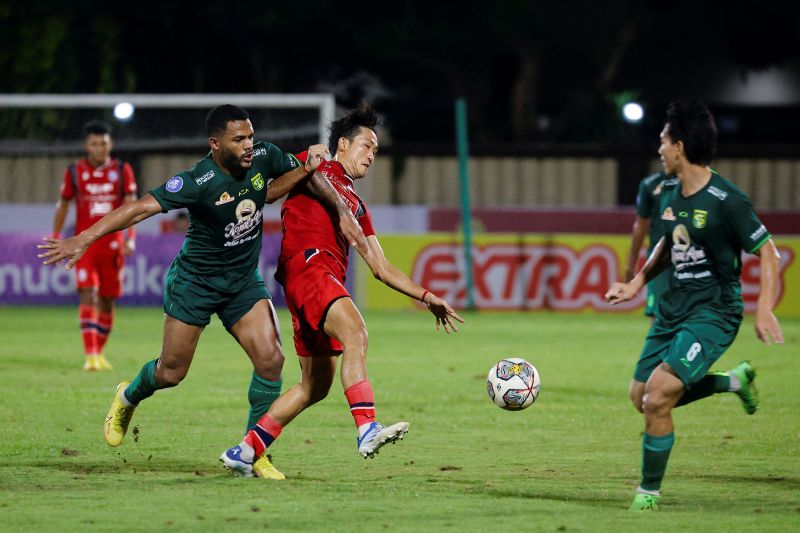Two of Indonesia’s biggest soccer teams Arema FC and Persebaya Surabaya played behind closed doors Tuesday in their first meeting since the deadly stadium disaster that killed more than 130 people in October.
The crush began when a number of the 42,000 Arema FC supporters ran onto the pitch following their 3-2 loss to rival Persebaya Surabaya at the Kanjuruhan stadium in Malang, East Java in October.
Some clashed with police, prompting security forces to fire tear gas into enclosed areas of the stadium – a crowd control measure banned by world soccer governing body FIFA.
Most of the deaths were found to have occurred as panicked fans attempted to flee the choking smoke, triggering a crush at the exits.
Several gates were still locked minutes after the referee blew the final whistle on the night of the disaster, the Football Association of Indonesia said in a statement last year.
Persebaya won 1-0 in Tuesday’s match, which took place without spectators at a stadium owned by the Indonesian police in Jakarta.
According to Reuters, Arema’s manager Joko Susilo said some of his players were still traumatized by last year’s stampede and were unable to play on Tuesday as a result.
“We know some of the players, one and two players were deeply (traumatized), but that was our job. And thank god, it was fine and we believe in our young talents in this second leg game, we believed they could do it,” Susilo added.
Following the stadium crush, which Indonesia’s National Police Chief described as one of the world’s deadliest stadium disasters, President Joko Widodo announced that Kanjuruhan Stadium in Malang would be demolished and rebuilt according to FIFA standards.
In March, two Indonesian soccer officials were sentenced up to 18 months in prison by a court over the deadly stadium crush, while three police officials charged with negligence will have their cases heard at a later date.
FIFA stripped Indonesia of hosting the men’s Under-20 World Cup later this year after an Indonesian official objected to the participation of Israel last month.
However, soccer’s global governing body said it “remains committed to actively assisting in the transformation process of Indonesian football following the tragedy.”
